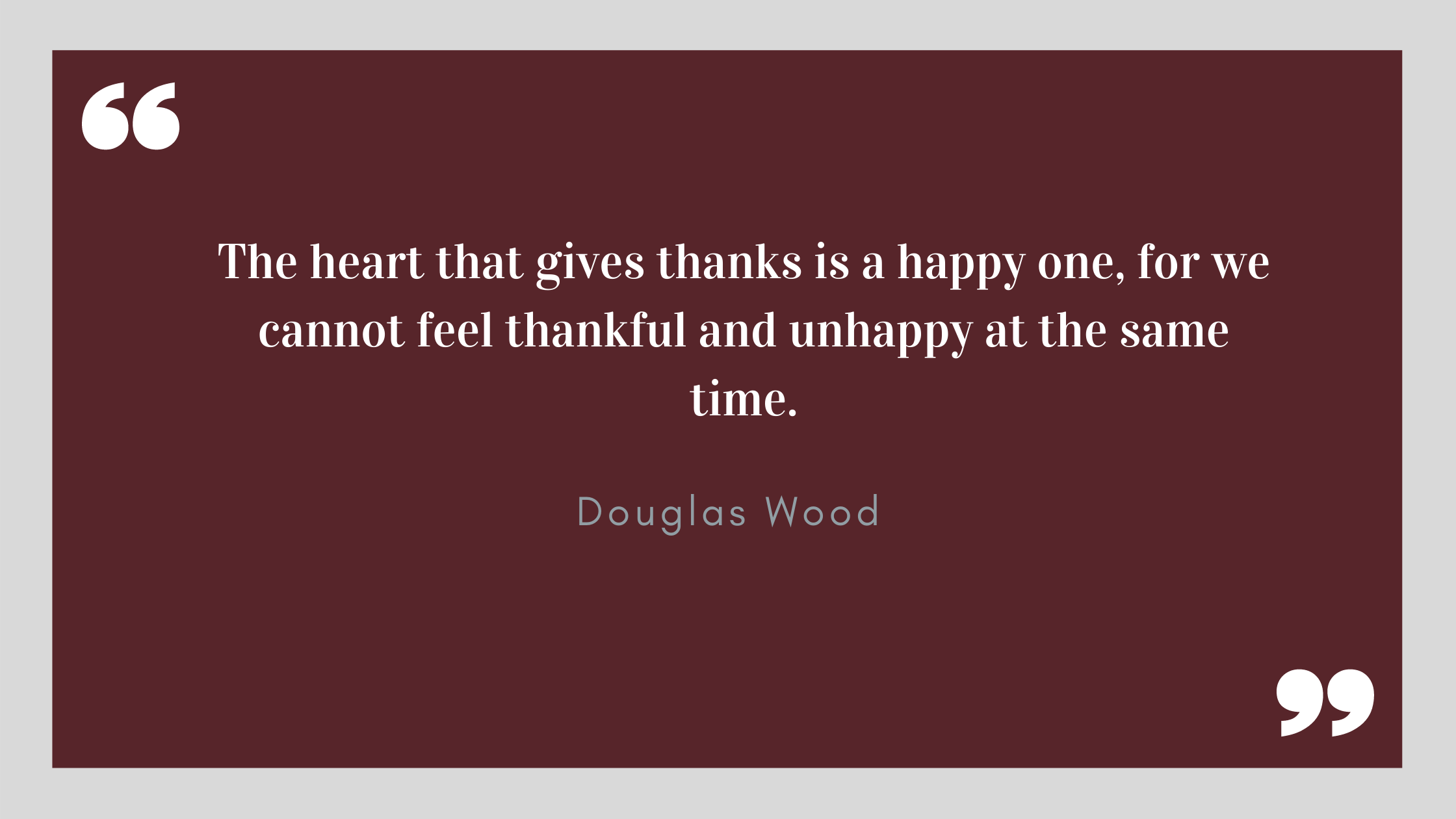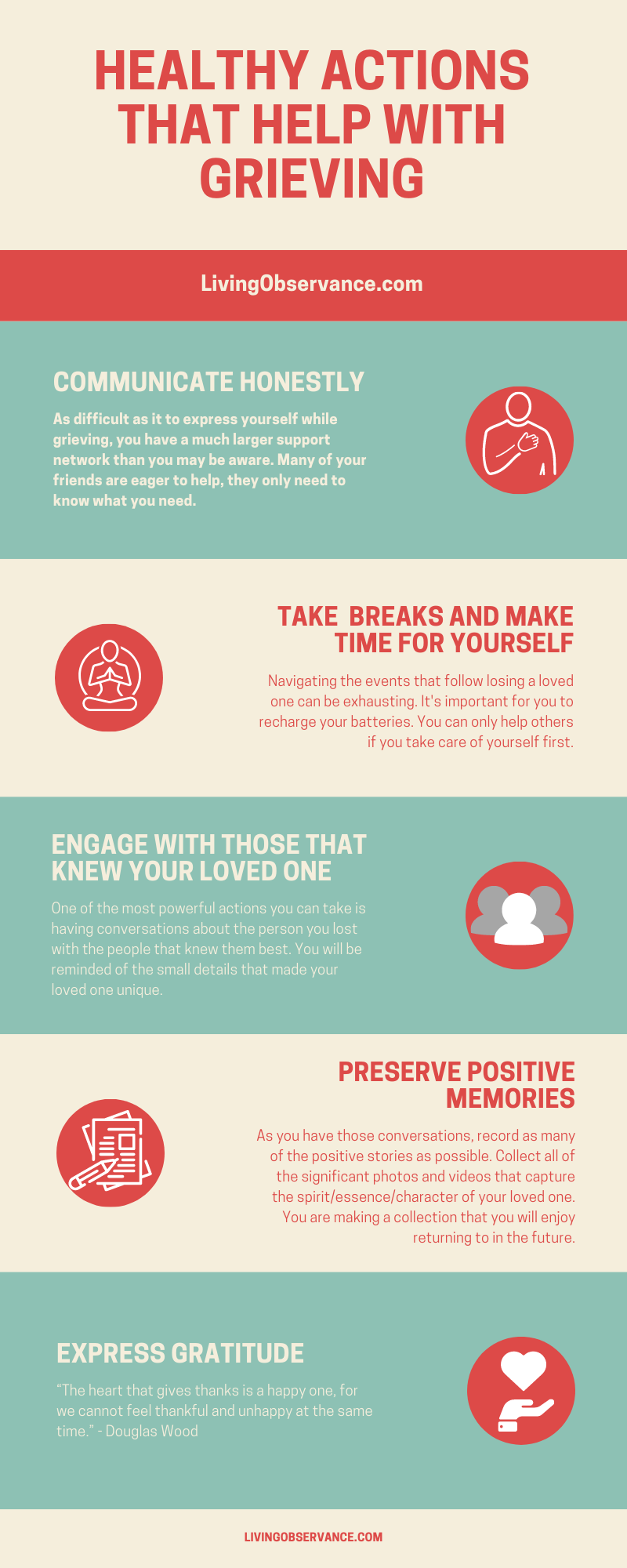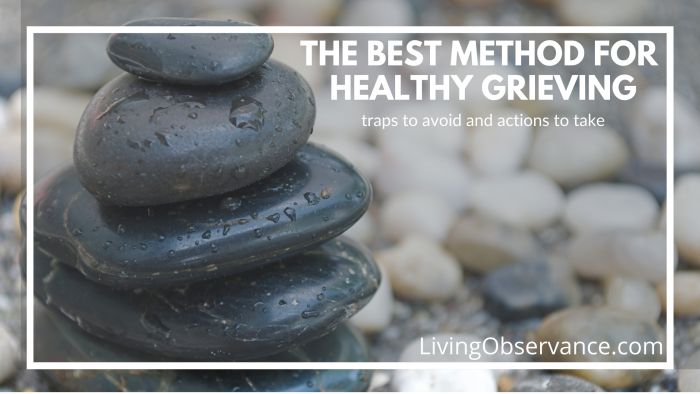Admittedly, the title of the article is slightly misleading. There is not a single method or path that leads to the most healthy grieving process. That said, there are several common traps to avoid and several positive actions you should try to employ. The purpose of this post is to help you navigate the minefield that I experienced during my grief journey.
This is going to be a longer post. For those of you that would like the highlight reel, here are the major bullet points to aid your grieving journey. If you’d like a little more detail, you can either click on the topic you want to explore more or scroll down for the rest of the article.
The Traps to Avoid
Healthy Grieving Tips

The Traps of Grief
Don’t Be Surprised By New Emotions
Throughout my childhood and adult life, I’ve received positive feedback about my ability to keep a positive and even temperament despite the situations that surrounded me. I actually came to pride myself on being (I’m going to create a new word here)” “unrattle-able.” Then my Mom passed away.
For the six weeks she was in the ICU, I was able to keep my cool while talking to hospital staff or family. I was with her as she passed. In the first hour after, I felt like the world was muted. The sounds of the machines that had been keeping my mom alive disappeared. I couldn’t hear the rush hour traffic outside anymore. Time just seemed to melt away. After that hour passed, I was consumed by anger. To this day, I can’t tell you what I was really angry at, but I was willing to direct it at the first person that dared to, in my opinion at the time, misstep.
I have never been angry like that in my life. Like I mentioned in the article about the Top 5 Things I Wish I Knew Before I Lost A Loved One, hurt people have a tendency to hurt people. I was projecting my pain onto others. Anger was my surprise emotion. It very well could have been depression, relief, confusion, hopelessness, contentment, and even joy that our loved one is no longer in pain. After your loved one passes away, emotions (or the lack of emotions) are going to come to you. Recognize those emotions and try to reframe them into more positive expressions. Just don’t be surprised when you may be feeling an emotion for the first time or stronger than you have experienced before.
Grief Recovery Doesn’t Happen On A Timeline
Today, more than 3 years after my Mom passed away, I am still grieving losing her. I am able to talk about her, and the negative feelings surrounding her death are mostly gone. I still have moments of sadness when I think about things like her missing the birth of my firstborn child by 4 months. Overall those sad moments are becoming fewer and farther between.
I was able to get to this same stage of grief recovery for my Grandpa in a significantly shorter time. I may have reached this stage faster because I have more experience now, but I think it is because I had so many more intentional conversations with my Grandpa. In my post about the poem “Farewell Father,” I talk about how the source of my pain came from the list of unanswered questions that I had. I was able to get more of those answers from my Grandpa before he passed away than I did from my mom.
There are so many different factors that can affect your individual grieving timeline that it is impossible to make a one size fits all plan. I can tell you that your experience will be unique to you. Don’t compare your experience to anyone else’s. Don’t try to rush through it. Let your grief unfold as it happens. You will recover in time.
Prematurely “Moving On” and Forgetting Can Prolong Your Pain
When I lost the people I care about, in moments of weakness, I would wish that I could forget about them. My pain was too great, and I was sure that if I could remove them from my memory, I could finally move on. I mistakenly believed that the faster they were left behind, the faster I could move forward. Looking back, I can see how I caused myself more pain.
One of my favorite quotes about bereavement comes from a research paper by Dr. Tony Walter on The New Model of Grief. He quotes a family friend that said, “..we should keep the spirit of the deceased alive, that we acknowledge them as a continuing member of our family and community. We are who we are in part because of who they were, and we are denying reality if we try to leave them entirely behind.”
I don’t think that we ever really “move on” from someone that has had a significant role in our lives. Whether that person is deceased or still alive, their absence from our life is painful. The solution is not to remove the person from our memory but to find an appropriate place for them. We should recognize their contributions to who we are.
Focussing On Your Grief And Loss Will Intensify Your Pain
After my Mom and my Grandpa passed away, I recognized that my thought process was pretty negative. I quickly corrected my behavior after my Grandpa passed, but there were still multiple times that I would slip back into it. As I would stew in that negativity, everything and anything that other people did just frustrated me. I would have thoughts like, “How could this person disrespect MY Mom that way?!” and “There is no way that Grandpa would approve of this!”
In reality, my Mom wasn’t being disrespected. My Grandpa probably would have just chuckled at whatever was happening. Because I was focusing on my own negative feelings, I convinced myself that my deceased loved ones would feel the same way. After I made myself believe that my loved ones were being disrespected, I only made myself more angry, for a longer period of time, and at a higher intensity.
The secret I discovered to avoid focussing on my grief was to help others with theirs. As I talked to my friends and family about their fondest memories of my deceased family, I could see that they enjoyed sharing those memories, and selfishly I enjoyed being reminded of certain personality quirks that I had forgotten about. Instead of focusing on the negative feelings, focus on remembering the deceased's character and all of the good they contributed to this world.
The Roadmap Of Grief Recovery
Be Honest About Your Feelings
I am a very reserved person. I rarely let anyone know what I am experiencing on the inside. That trait serves me well in many situations, but healing from grief isn’t one of them. I didn’t want to share my feelings with anyone because I didn’t want them to feel the weight of my depression. As I tried to deal with my grief alone, I became incredibly lonely.
I had to meet with the estate lawyers, I had to organize the funeral, I had to contact the creditors, and I had to (try to anyway) be a good husband and father. It all became too much. When I started to ask for help, I was surprised how many people were able to step up. In fact, they were eager to do whatever they could for me. They were only waiting for me to say what I needed. As an added bonus, they felt better knowing that they are able to do something that helped me.
There were a couple of people that were a bit “too helpful.” Trying to be as honest but still respectful as possible, I thanked them for all of their support up to that point and explained that now I needed some time for myself. They didn’t take any offense, and as quickly as they came to help, they then gave me space. If you don’t know what you need, that is a great place to start with people. You can always say, “I just don’t know yet.” The key is just being honest.
Give Yourself Permission To Be Alone
Not everyone finds comfort in groups. I’m an introvert. While I can function in groups, I feel exhausted by the end of the affair. So many of the events that follow someone’s death involve gatherings of people. Many times as a surviving family member, others will want to interact with you. Everyone who comes to you has the best intentions, but sometimes you need a break from it all.
There were several times where I turned off my phone and went for a drive. I mentioned earlier that you can help yourself by helping others with their grief. I genuinely believe that, but there is an exception. You have to take care of yourself first. Just like in the safety briefing on an aircraft (that every single passenger removes their headphones to listen to), you must secure your own oxygen before helping others.
If you burn out, then you hurt yourself and those around you. Take time for yourself.
Excuse Yourself From Grief and Administrative Tasks Periodically
My Mom was the first person I lost. I felt that to be a good son, I had to take care of everything by myself. The only way I could do it all was by sacrificing my sleep and relationships. In the middle of the night, as I was trying to finish the handouts for the funeral, I hit my wall. I was trying to avoid my grief by focussing on the administrative tasks. Grief engulfed me.
For the next 2 days, every time I tried to tackle the administrative tasks, I was trying to confine my grief. As I repressed my grief, I was overwhelmed by guilt. Eventually, my wife, with all of her grace and wisdom, encouraged me to take a break. She encouraged me to disconnect from everything, if only for 30 minutes. I drove to my favorite fast food joint and ordered my favorite milkshake: peanut butter, chocolate, and banana. That short break was exactly what I needed to reset my emotional state.
As you wrestle with grief, know that it’s okay to still experience some joy and happiness. You don’t need to be sad all of the time in order to honor your loved one. The companies that need copies of the death certificates can wait a few days before closing the accounts. Take time to do something that will make you happy.
Engage And Embrace The Community That Shares Your Loss
After losing someone you care about, it’s hard to know what to say, let alone who you should say it to. You might know that you want to say something, but you just can’t quite figure out how to express it. The other people that were close with the person that passed away will all be feeling the same way. There is also a long list of reasons why communication might be challenging between two people grieving the same loss. Two of the biggest reasons are the different speeds at which people grieve and the many different styles that people grieve.
When you are ready, you should reach out to other people that knew your loved one. That small gesture gives them (and yourself) permission to start a conversation. It might be stop-and-go or a bit awkward, but as you both share memories about the deceased, you will recreate an image of them that will help both of you heal. In my experiences, I was able to rediscover my relationship with the deceased and, in a way, meet them for the first time. Everyone I talked to knew a slightly different version of my loved one. These conversations are not only the best way to honor the deceased but also the best way to begin healing your own emotional pain.
Preserve Your Positive Memories
There are two practices that I found to significantly improve my state of mind and expedite my grief recovery. I struggled with my grief for 3 years before I finally learned these lessons.
The first practice was recording all of the positive memories and stories I had about my loved ones. I started asking family members for the stories associated with some old photos I found, I asked about what my loved ones were like before I was around, and most importantly, I listened to every word that they shared with me.
I started to record all of the stories. I started to compile the photos that had the most significance to my family members. I watched hours of home videos and took notes about what was in each video. By putting all of these written, video, and photographic memories together in one place, I made something that I can return to when I miss my loved one. I also created something that I can use to introduce my children, that were born after the death, to my loved one in the same light that I remembered them.
Practice Gratitude At Every Opportunity
The second practice that helped me most throughout my grief journey was simply recognizing how many people cared about my loved one. As I had conversations and collected memories, I learned how much other people genuinely cared about my loved one.
Author Douglas Wood said it best in his book, which is appropriately named The Secret of Saying Thanks, “The heart that gives thanks is a happy one, for we cannot feel thankful and unhappy at the same time.”
When I started to thank people for the friendships they shared with my loved one (I know it can sound a little weird to say it out loud), I started to recognize how many people actually cared about me also. The more gratitude I expressed, the more support I found, and the faster my pain started to subside. I finally found myself being able to cheerfully talk about the people I’d lost. The key was simply to start saying thank you to the people helping me. Who would have guessed it?
Conclusion:
At the end of the day, the best method for healthy grieving is the one that you create. Because of the many factors that personalize our grief experiences, it is impossible for anyone to tell you what your journey will be like. I sincerely hope that some of the practices I covered in this post will help you. You can put many of these methods to work in your daily life. The more you flex these muscles today, the easier it will be to use them when you need them.


